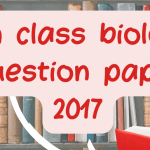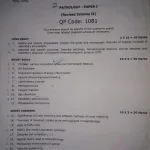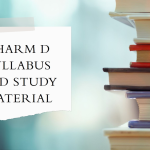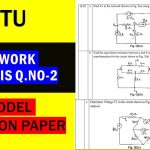Previous year question papers are essential resources for exam preparation. They help students understand question patterns, important topics, and the format of the examination, enabling effective study planning. Accessing and practicing these papers builds confidence and enhances performance in RGUHS exams.
General Medicine
Question: What are the clinical features of typhoid fever?
Answer: Typhoid fever presents with prolonged fever, abdominal pain, constipation or diarrhea, rose spots on the abdomen, and splenomegaly.
Question: Explain the pathophysiology of hypertension.
Answer: Hypertension occurs due to increased vascular resistance from narrowing of arteries, increased blood volume, or hyperactivity of the sympathetic nervous system.
Question: What is the management of acute myocardial infarction?
Answer: Management includes MONA (Morphine, Oxygen, Nitroglycerin, Aspirin), thrombolytics, anticoagulants, and beta-blockers.
Question: Discuss the complications of diabetes mellitus.
Answer: Complications include retinopathy, nephropathy, neuropathy, cardiovascular disease, and diabetic foot ulcers.
Question: How is hepatitis B transmitted?
Answer: It is transmitted via blood, sexual contact, and vertical transmission from mother to child.
Question: What are the causes of anemia?
Answer: Causes include nutritional deficiencies (iron, B12, folate), chronic diseases, blood loss, and hemolysis.
Question: Explain the clinical features of pneumonia.
Answer: Symptoms include cough with sputum, fever, chest pain, dyspnea, and crepitations on auscultation.
Question: What is the treatment for bronchial asthma?
Answer: Treatment includes bronchodilators, corticosteroids, leukotriene receptor antagonists, and avoiding triggers.
Question: Describe the diagnostic criteria for rheumatoid arthritis.
Answer: Criteria include morning stiffness, arthritis in three or more joint areas, rheumatoid nodules, and positive rheumatoid factor.
Question: What are the symptoms of hypothyroidism?
Answer: Symptoms include fatigue, weight gain, cold intolerance, dry skin, constipation, and bradycardia.
Question: What is the role of insulin in glucose metabolism?
Answer: Insulin facilitates glucose uptake by cells, glycogen storage, and inhibition of gluconeogenesis.
Question: How is tuberculosis diagnosed?
Answer: Diagnosis involves sputum analysis, chest X-ray, Mantoux test, and GeneXpert test.
Question: What are the types of shock?
Answer: Types include hypovolemic, cardiogenic, distributive (septic, anaphylactic), and obstructive shock.
Question: What is the management of acute kidney injury?
Answer: Management includes treating the underlying cause, fluid management, and dialysis if required.
Question: What are the symptoms of meningitis?
Answer: Symptoms include fever, headache, neck stiffness, photophobia, and altered consciousness.
Question: How is peptic ulcer disease treated?
Answer: Treatment involves proton pump inhibitors, H2 blockers, antibiotics for H. pylori, and avoiding NSAIDs.
Question: What are the signs of liver cirrhosis?
Answer: Signs include jaundice, ascites, splenomegaly, varices, and encephalopathy.
Question: Explain the clinical features of systemic lupus erythematosus.
Answer: Features include malar rash, arthritis, renal involvement, photosensitivity, and oral ulcers.
Question: What is the role of beta-blockers in cardiac diseases?
Answer: Beta-blockers reduce heart rate, decrease myocardial oxygen demand, and control arrhythmias.
Pharmacology
Question: What is the mechanism of action of penicillin?
Answer: Penicillin inhibits bacterial cell wall synthesis by targeting peptidoglycan.
Question: Describe the pharmacokinetics of aspirin.
Answer: Aspirin is rapidly absorbed, metabolized in the liver, and excreted via the kidneys.
Question: What are the side effects of corticosteroids?
Answer: Side effects include weight gain, hypertension, osteoporosis, hyperglycemia, and immunosuppression.
Question: Explain the therapeutic uses of atropine.
Answer: Uses include treating bradycardia, organophosphate poisoning, and as a pre-anesthetic.
Question: What is the mechanism of action of proton pump inhibitors?
Answer: PPIs inhibit the H+/K+ ATPase enzyme in gastric parietal cells, reducing acid secretion.
Question: What are the adverse effects of aminoglycosides?
Answer: Effects include nephrotoxicity, ototoxicity, and neuromuscular blockade.
Question: How does warfarin act as an anticoagulant?
Answer: Warfarin inhibits vitamin K-dependent clotting factors II, VII, IX, and X.
Question: What is the antidote for benzodiazepine overdose?
Answer: The antidote is flumazenil, a competitive antagonist at GABA receptors.
Question: Describe the uses of statins.
Answer: Statins are used to lower LDL cholesterol, reduce cardiovascular risk, and treat hyperlipidemia.
Question: What is the mechanism of action of metformin?
Answer: Metformin reduces hepatic gluconeogenesis, improves insulin sensitivity, and enhances glucose uptake.
Practicing RGUHS previous year question papers helps students strengthen their preparation. By solving subject-specific questions, students can improve understanding, identify weak areas, and enhance exam performance. Regular revision with these questions ensures confidence and readiness for the exams.
Latest Posts
- Step-by-step guide to download and apply for jee mains admit card 202
- Comprehensive 2025 government holidays and recruitment details for job seekers
- JEE Mains Admit Card 2025: Your Step-by-Step Guide to Downloading the Hall Ticket
- Everything You Need to Know About 2025 Government Holidays Recruitment
- Comprehensive Guide to rrb d group recruitment 2025 – Eligibility, Vacancies, and Application
- Detailed guide to nps trust recruitment 2025 vacancies, eligibility and apply process
- Comprehensive guide to hpcl recruitment 2025 notification, vacancies, and application process
- ignou bed admission 2025 complete recruitment guide with eligibility and process
- Comprehensive Guide to Indian Army Agniveer Recruitment 2025 Notification and Jobs
- Everything You Must Know About CBSE Board Exams 2025 Changes & New Rules






